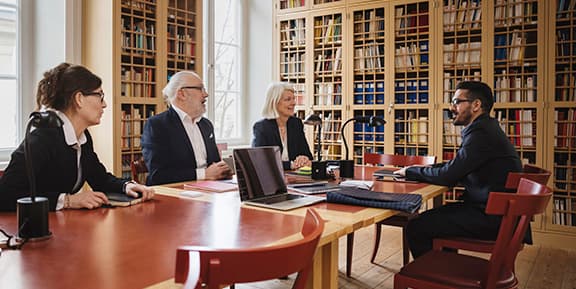Projects
Take a look at our services in development and other innovation projects, all made possible by our major funders.
Explore 26 projects
Refine
10 results
Type
Topic
- Artificial intelligence
- Digital transformation
- Infrastructure and systems
- International
- Leadership and culture
- Learning, teaching and assessment
- Legal
- Libraries
- Online learning
- Open access
- Organisational change
- Research and innovation
- Security, access and identity management
- Standards and policies
- Student journey

Digital transformation library lens pilot programme
Seven university libraries use our digital transformation library lens to amplify their role and contribute to meaningful, institution-wide change.
Our project partners:
- Aston University,
- Buckinghamshire New University,
- Edge Hill University,
- London Metropolitan University,
- Teesside University,
- The University of Glasgow,
- University of Westminster
Project status: Ongoing project

Streamline Microsoft 365 with cloud assist
Cloud assist simplifies Microsoft tenancy management through automation, improving efficiency, reducing costs and supporting compliance for your organisation.
Project status: Ongoing project

Exploring the potential for Sylla to source open educational resources
We are piloting the Sylla platform which surfaces low or no-cost open educational resources at scale, replacing costly textbooks and fostering sector-wide collaboration.
Our project partners:
- Sylla,
- University of Hertfordshire,
- Edge Hill University
Project status: Ongoing project

Digital transformation library lens: supporting digital practice in academic libraries
Co-designing a new resource with the community based on our digital transformation framework to enhance libraries’ role in digital transformation.
Our project partners:
- SCONUL,
- CILIP,
- Research Libraries UK
Project status: Archived project
Duration: 9 months
Project ended: 26 September 2025

Beyond blended: researching institutional approaches to blended learning in higher education
Our pilot includes 17 universities who will use our resources to help them take forward their strategies and approaches for blended learning.
Project status: Ongoing project

Collaborative solutions for higher education challenges
Identifying opportunities to optimise higher education operations through collaboration.
Project status: Ongoing project

Extending govroam: connectivity beyond the fixed fibre network
Extending seamless govroam connectivity from various public sector off-site locations.
Project status: Archived project
Duration: 1 year and 4 months
Project ended: 31 July 2025

Enhancing the tools for UK universities to improve student engagement
We’re upgrading our learning analytics platform, making it faster, more efficient and easier to use.
Project status: Archived project
Duration: 9 months
Project ended: 28 October 2024

Security operations centre (SOC): defending UK education and research
As cyber threats become increasingly sophisticated, we are taking a proactive stance to help our members navigate the challenges of protecting their valuable digital assets.
Our project partners:
- Splunk,
- Microsoft Defender,
- CrowdStrike
Project status: Archived project
Duration: 1 year and 1 month
Project ended: 18 December 2024

Reviewing and enhancing our digital licensing service
We are transforming our licensing service to negotiate an increased range of vendor solutions across the digital estate of education and research organisations.
Project status: Just completed
Duration: 2 years
Project ended: 30 November 2025